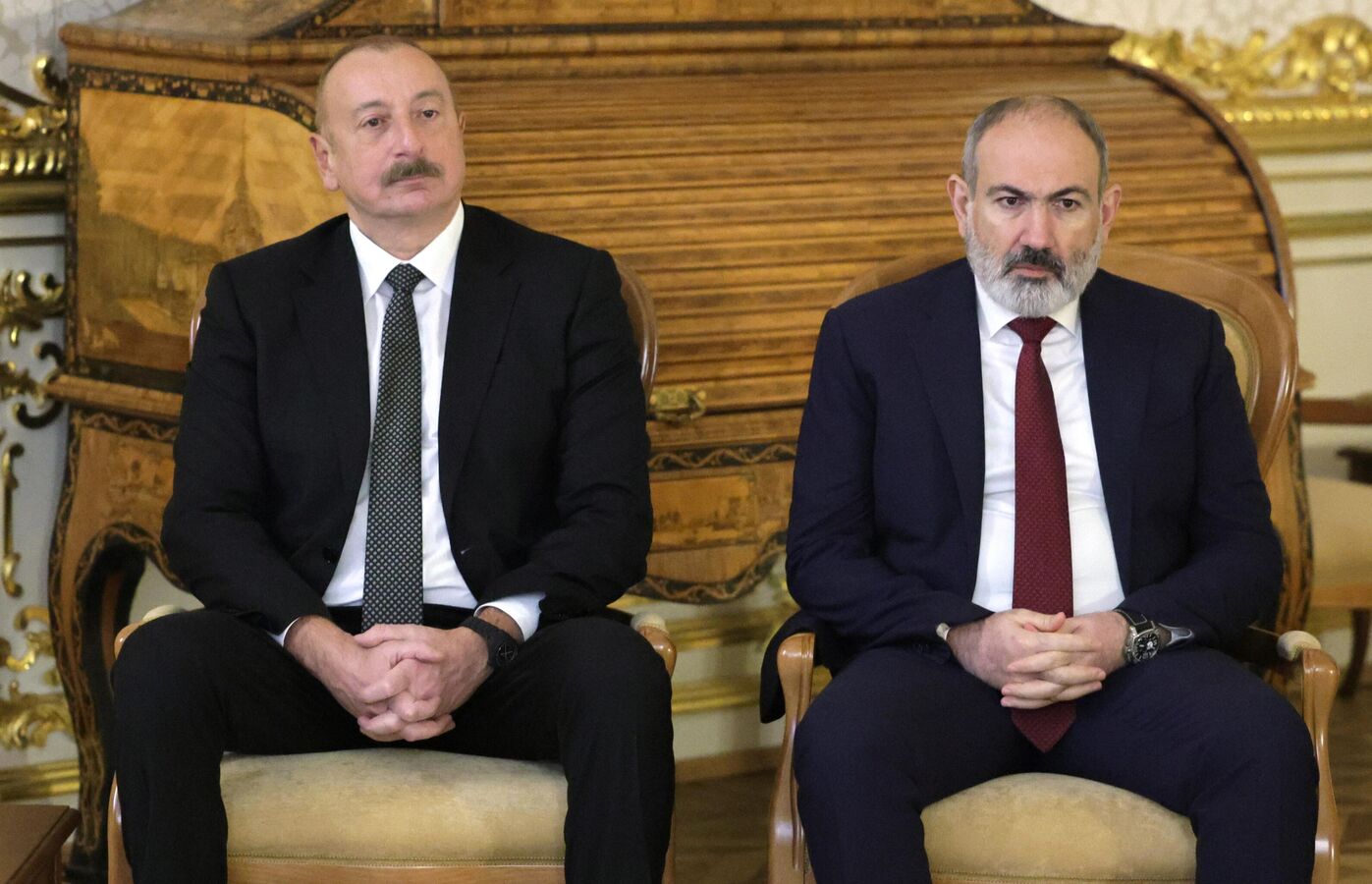Today, the biggest news comes from the southern Russian flank. Russian forces were put on high alert because Armenia and Azerbaijan, enemies through decades of war, are now preparing to sign a peace deal that could transform their contested border into a joint lifeline for security. This sudden alignment is not born of friendship, but of the shared enemy that Russia has become.
Washington meeting lays groundwork for peace
Recently, the presidents of Azerbaijan and Armenia met in Washington, where they signed a preliminary agreement that could serve as the foundation for a final peace deal. The memorandum outlines:
- Mutual recognition of sovereignty
- Renunciation of territorial claims
- Demilitarization of the border
- Creation of the Zangezur Corridor, linking Azerbaijan to its exclave through Armenia
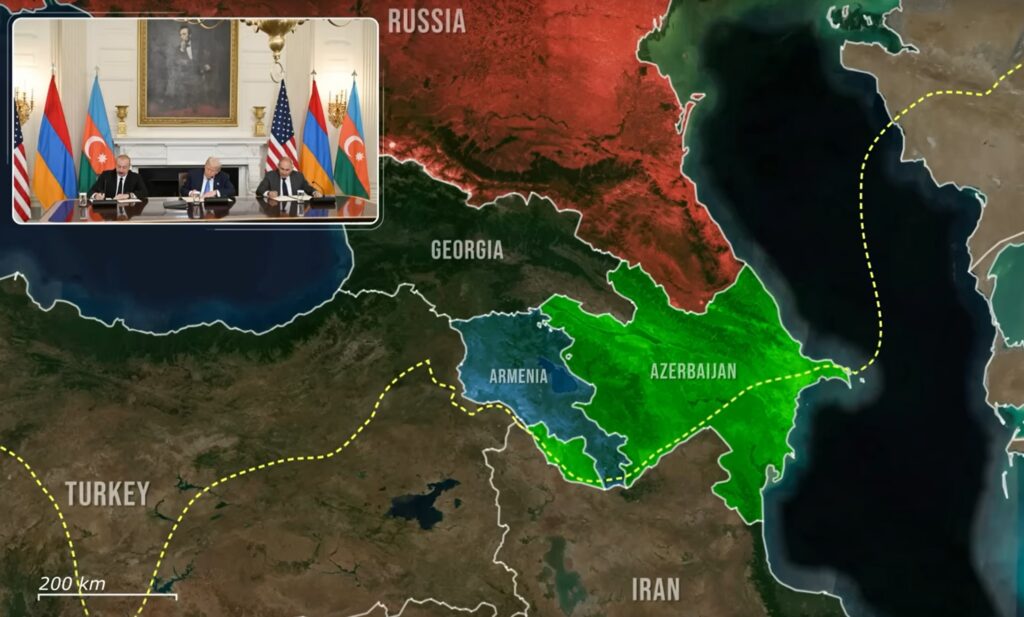
The Zangezur corridor: a strategic game-changer
The Zangezur Corridor will remain under Armenian sovereignty but be operated by a US-led private military company. This arrangement oversees energy lines and road networks, combining infrastructure development with third-party security.
For both nations, this signals the most substantive break from decades of hostility since the Nagorno-Karabakh conflict began.
Decades of conflict over Nagorno-Karabakh
Armenia and Azerbaijan have fought bitterly since the collapse of the Soviet Union, with two wars and recurring clashes costing tens of thousands of lives.
- The conflict centered on control of an Armenian-majority enclave in Azerbaijan.
- After victories in 2020 and 2023, Azerbaijan ended Armenia’s military presence, dissolving the enclave and reclaiming all territories.
This new peace deal effectively closes the chapter on the territorial dispute.
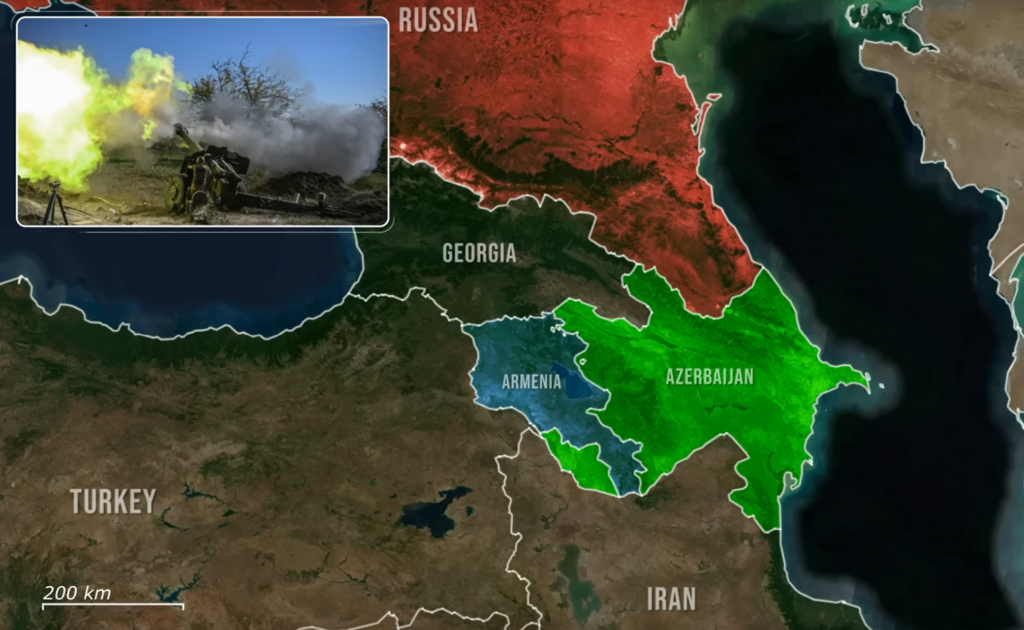
Armenia’s pivot away from Russia
For Armenia, the agreement marks a dramatic shift away from failed Russian security guarantees. Once reliant on Moscow through the CSTO and Russian troops in Gyumri, Armenia watched Russia remain passive during conflicts in 2020 and 2023.
Armenia fears both a “Syrian scenario”, where foreign forces exploit Russia’s weakness, and a “Georgian scenario”, where Russian troops seize control. By anchoring a US-managed corridor, Armenia secures deterrence and Western economic interest.
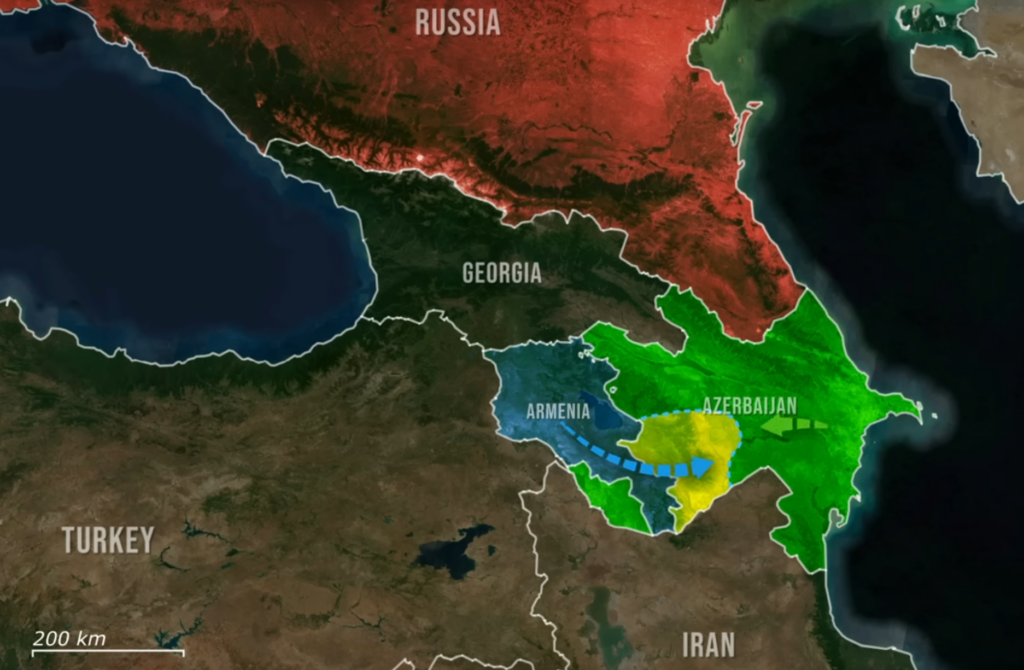
Azerbaijan’s strategic insulation from Moscow
Azerbaijan also sees the deal as liberation from Moscow’s interference. Russian actions—such as the missile strike on its embassy in Kyiv and the downing of Azerbaijani aircraft—have deepened mistrust.
With the Zangezur Corridor under US oversight, Azerbaijan gains:
- Direct link to Türkiye and allies
- Strategic insulation from Russian troops
- Predictable transit revenues and trade integration
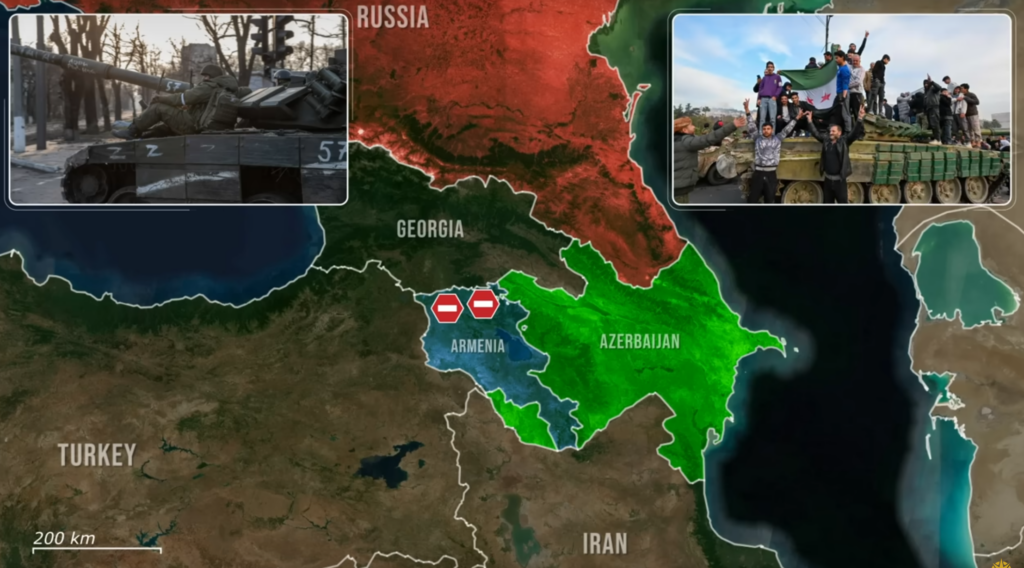
US-led corridor as de facto peacekeeping force
The private military company managing the corridor could serve as a peacekeeping mechanism, embedding economic and security guarantees.
Any disruption would harm both countries’ economies and Western interests, creating a mutual incentive for stability.
A new balance of power in the South Caucasus
This is more than a symbolic handshake. The peace deal is a strategic realignment that:
- Resolves a decades-old dispute
- Weakens Russia’s influence in the region
- Anchors Armenia and Azerbaijan closer to the West
If finalized, it could reshape the balance of power in the South Caucasus in ways Moscow can no longer afford to control.
In our regular frontline report, we pair up with the military blogger Reporting from Ukraine to keep you informed about what is happening on the battlefield in the Russo-Ukrainian war.




